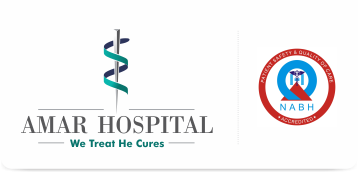Brain stroke is a critical medical condition that demands immediate attention and expert care. In Punjab, the rise in stroke cases has highlighted the need for awareness about its causes, symptoms, and treatment options. In this comprehensive guide, we delve into everything you need to know about brain strokes and why consulting the best neurologist in Punjab is crucial for effective management and recovery.
What is a Brain Stroke?
A brain stroke is a disruption that prevents brain tissue from getting oxygen and nutrients, leading to the death of brain cells within minutes. Strokes can result in significant brain damage, disability, and even death if not treated promptly.
Types of Brain Strokes
There are primarily three types of brain strokes:
- Ischemic Stroke: This is the most common type, accounting for about 87% of all strokes. It occurs when a blood clot blocks a blood vessel supplying blood to the brain.
- Hemorrhagic Stroke: This can result from high blood pressure, aneurysms, or arteriovenous malformations (AVMs).
- Transient Ischemic Attack (TIA): Often called a mini-stroke, TIA occurs when the blood flow to the brain is temporarily blocked. Although TIAs do not cause permanent damage, they are warning signs of a potential major stroke in the future.
Symptoms of Brain Stroke
Recognizing the symptoms of a brain stroke is vital for FAST and timely intervention:
- Face Drooping: One side of the face droops or feels numb.
- Arm Weakness: One arm feels weak or numb.
- Speech Difficulty: Slurred or strange speech.
- Time to Call Emergency Services: If you observe any of these symptoms, it’s critical to seek immediate medical help.
Other symptoms may include sudden confusion, trouble seeing in one or both eyes, sudden trouble walking, dizziness, loss of balance, or severe headache with no known cause.
Causes and Risk Factors
Several factors can increase the risk of brain stroke, including:
- High Blood Pressure: The cause of stroke.
- Diabetes: Increases the risk of stroke due to damage to blood vessels over time.
- Heart Diseases: Conditions like atrial fibrillation and heart failure.
- Smoking: Doubles the risk of ischemic stroke.
- Obesity: Linked to various stroke risk factors like high blood pressure, diabetes, and heart disease.
- Age and Gender: Stroke risk increases with age and is more common in men, although women tend to have more severe strokes.
Diagnosis and Treatment
Prompt diagnosis and treatment by the best neurologist in Punjab can significantly improve outcomes for stroke patients. The diagnostic process typically involves:
- Physical Examination: Checking for signs of stroke and assessing medical history.
- Imaging Tests: CT scan or MRI to determine the type of stroke and the location.
- Blood Tests: To check for underlying conditions like diabetes or high cholesterol.
Treatment Options
The treatment for a brain stroke depends on its type:
- Ischemic Stroke:
- Clot-Busting Medications: Administered within the first few hours to dissolve clots.
- Mechanical Thrombectomy: Surgical removal of the clot.
- Blood Thinners: Prevent future clots.
- Hemorrhagic Stroke:
- Medications: To lower blood pressure and control bleeding.
- Surgery: To repair blood vessels or remove blood clots.
- Endovascular Procedures: Minimally invasive techniques to stop bleeding.
Rehabilitation and Recovery
Recovery from a stroke often requires a comprehensive rehabilitation program, which may include:
- Physical Therapy: To regain strength and mobility.
- Occupational Therapy: To improve daily living skills.
- Psychological Support: To cope with emotional changes and depression.
Consulting the best neurologist in Punjab is essential for a tailored rehabilitation plan that maximizes recovery and quality of life.
Prevention Tips
Preventing a brain stroke involves addressing the risk factors and adopting a healthy lifestyle:
- Control Blood Pressure: Regular monitoring and medication if necessary.
- Manage Diabetes: Keeping blood sugar levels in check.
- Quit Smoking: Reducing stroke risk significantly.
- Eat a Healthy Diet: Rich in fruits, vegetables, whole grains, and lean proteins.
- Limit Alcohol: Drinking in moderation.
- Regular Check-Ups: Regular visits to your healthcare provider for early detection of potential issues.
The Role of the Best Neurologist
Choosing the best neurologist can make a significant difference in the management and outcome of a brain stroke. Expert neurologists have the experience and knowledge to provide:
- Accurate Diagnosis: Advanced imaging and diagnostic tools.
- Effective Treatment Plans: Tailored to the type and severity of the stroke.
- Comprehensive Rehabilitation: Coordinating with therapists and other specialists.
- Ongoing Support: Monitoring and managing long-term health post-stroke.
Conclusion
Brain stroke is a severe medical condition that requires immediate attention and expert care. Awareness of its symptoms, risk factors, and treatment options can save lives and improve outcomes. By consulting the best neurologist, patients can ensure they receive the highest standard of care, from diagnosis to recovery. Remember, timely intervention is key to minimizing the impact of a stroke and enhancing the quality of life for survivors.
In Punjab, the best neurologists are equipped with the expertise and resources to handle stroke cases effectively, providing hope and healing to patients and their families. Prioritize your health, recognize the signs of stroke, and seek professional help promptly to combat this life-threatening condition.


